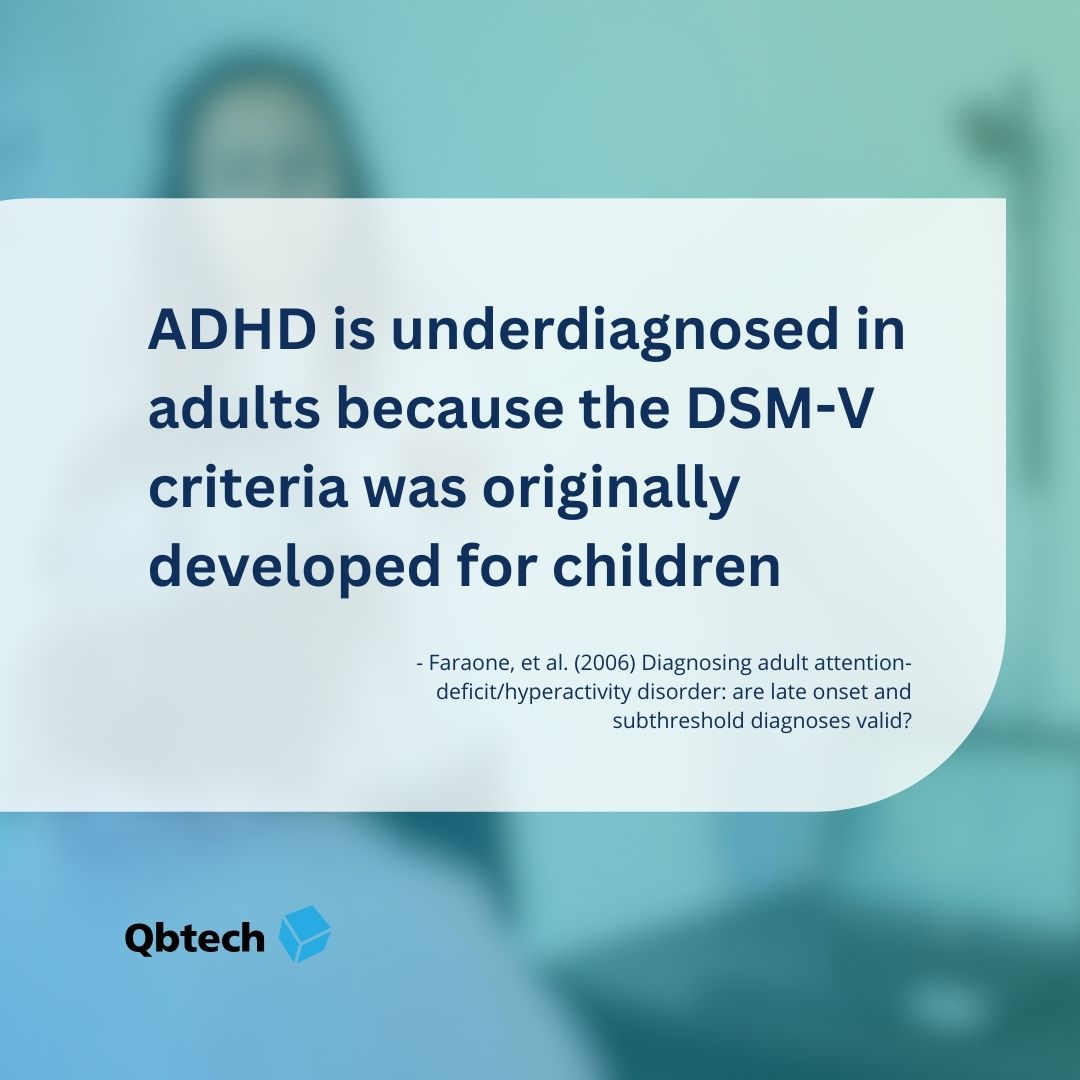ADHD Awareness Month: Squashing 4 harmful misconceptions

October is ADHD Awareness Month – a time for us to learn more about the neurodevelopmental disorder and how it impacts people who have it. This year’s theme is ‘Moving Forward with ADHD’, helping people understand their diagnosis.
As of late, ADHD has gained a lot of traction partly due to social media and those in the spotlight talking openly about their diagnosis. But with a rise in discussions unfortunately comes a rise in misconceptions. Our understanding of ADHD has jumped significantly over the last generation, however even after the considerable amount research that has gone into the disorder, there are still outdated myths that have an impact on those who have it.
Myth 1: ADHD is over diagnosed
There is no doubt that there has been an increase in ADHD diagnoses in recent years. This doesn’t however mean that it is over diagnosed – because more people are learning about the disorder and spotting symptoms in their own behavior, more people are getting tested and therefore diagnosed. In the UK, between 2000 and 2018, there has been a 20-fold increase in ADHD diagnoses.
Statistics estimate that less than 20% of adults with ADHD are currently diagnosed.
Many scientists think that ADHD is underdiagnosed in adults because the Diagnostic and Statistical Manual of Mental Disorders (DSM-V) criteria was originally developed for children. ADHD symptoms affect adults differently to children – since, the new edition has been adapted to fit the diagnosis of adults.
Myth 2: Children with ADHD are badly behaved
This is one of the most common misconceptions of ADHD in young people – the stereotype of hyperactive, badly behaved boys. While it is true that the hyperactive and impulsive subtype is more common in males and inattention in females, it’s worth bearing in mind that puberty can be a challenging time for young people with ADHD.
During puberty, hormonal changes can amplify ADHD symptoms. A rise in testosterone can encourage risky and impulsive behavior in boys whereas estrogen and progesterone can affect how well treatment can work in girls.
Myth 3: ADHD is just a deficit in attention
Symptoms of ADHD can be vast – the disorder manifests differently in each person. How one person feels with ADHD might be a completely different experience to someone else.
ADHD is not just a deficit in attention. While we know that people can experience impulsivity and inattention, there are other challenges that those with ADHD can experience. These can include comorbidities, impairment in the executive function, emotional dysregulation, and rejection sensitive dysphoria.
- Comorbidities: At least half of people with ADHD have at least one comorbidity, which can include learning disabilities, anxiety, and mood disorders to name a few. Some comorbidities can be a result of the frustration of coping with ADHD such as anxiety or depression, whereas some might exist because the causes of it overlap with ADHD.
- Impaired executive function: The executive function is involved in monitoring and adjusting behaviors, managing time, sustaining attention, and multitasking. When it isn’t working as it should, it can affect your ability to do these things.
- Emotional dysregulation: People have an impaired ability to control their emotional responses. For example:
- Struggling to calm down
- Becoming easily frustrated and temperamental
- Having a low tolerance for annoyance
- Feeling overwhelmed with emotions
Rejection sensitive dysphoria (RSD): While RSD isn’t on the diagnostic criteria for ADHD, many of those with ADHD experience RSD.
Myth 4: People who take ADHD medication are more likely to abuse substances
25% of people with ADHD have abused substances. Yet, there is a damaging misconception that those who take medication for ADHD are more likely to abuse substances, however there is no evidence for this. Myths like this can be very detrimental to a person’s care, as they are likely to forgo medication under the belief that it could cause them to become addicted to substances.

What research has indicated, however, is that medication can actually make people less likely to abuse substances than their undiagnosed counterparts. By treating the symptoms of ADHD, they are less likely to indulge in this type of behavior.
In simple terms, effectively treating ADHD can help reduce the chances of substance abuse.
Learn more about the recent rise in ADHD diagnoses as well as our objective ADHD assessment tool QbCheck.
Complete the form below to find out more
